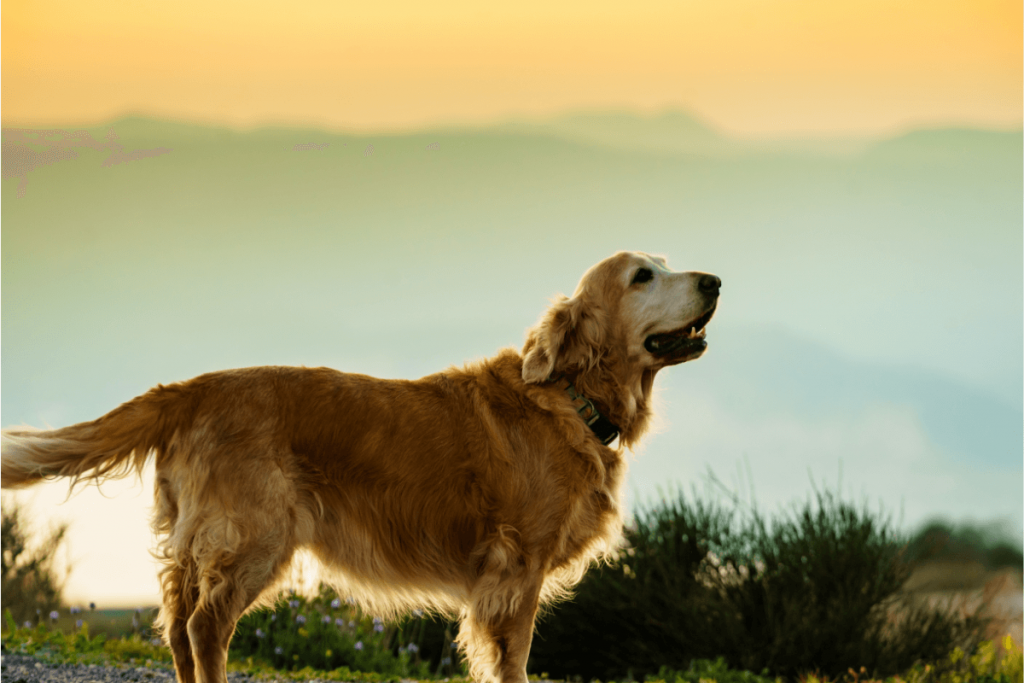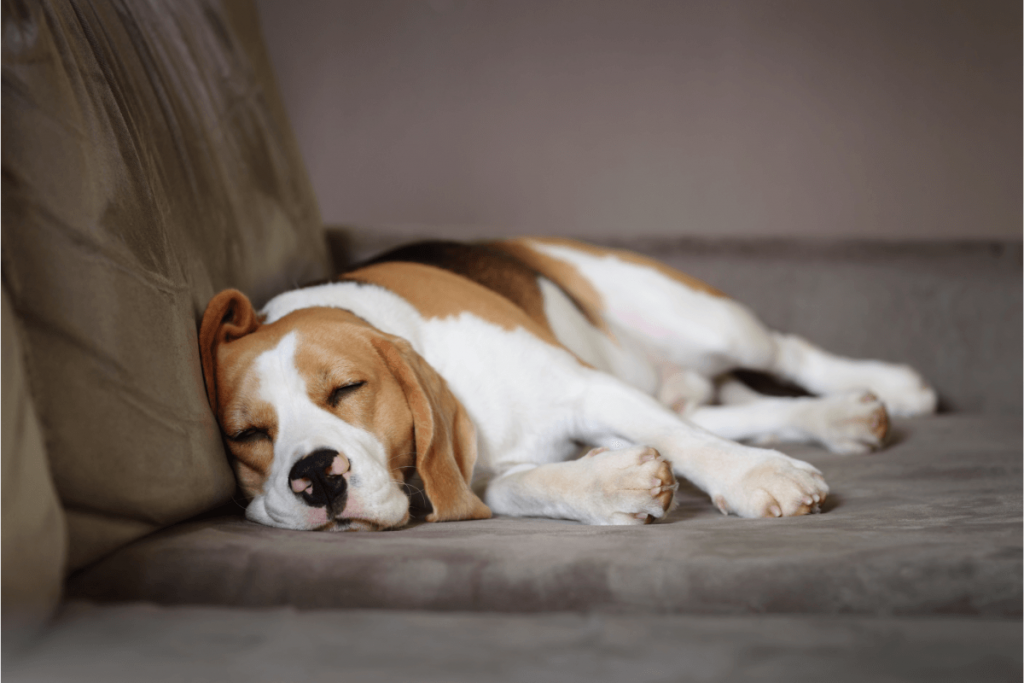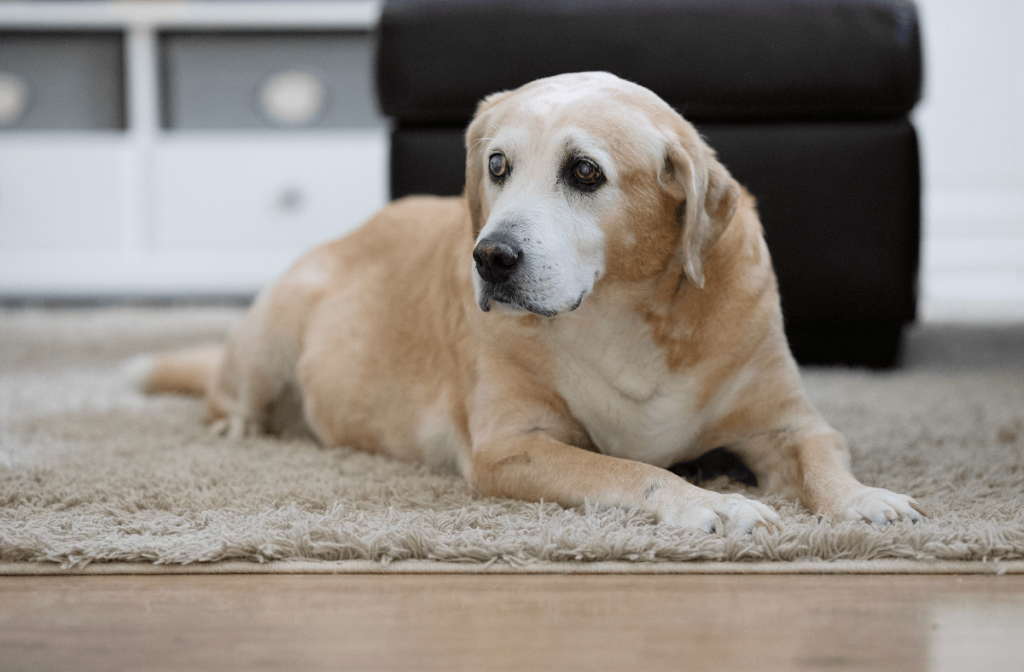As your dog enters their senior years, they will require some extra care and attention to make sure they are in the best shape possible.
Here are five pieces of advice from our small animal clinic vets on the best ways to care for your dog as they enter their golden years.
Don’t forget about exercise
Even though your pooch may be ageing, it’s still important to keep up their exercise. This is important to keep their muscles and bones healthy, for mental stimulation and to maintain a healthy weight. However, the type of exercise will most likely change as they get older.

Shorter, slower walks are perfect for geriatric dogs. Walking is nice and gentle on their ageing joints. It gives your dog a change of scenery and an opportunity to socialise with other dogs and people. Let your dog set the pace, and make sure the distance is appropriate for their age and stamina. It is also important to consider the temperature when heading out for a walk. In summer, opt for morning or evening walks to avoid the hotter parts of the day.
You may need to adjust their diet
As dogs age and start to slow down, they will typically need to ingest less calories. You can achieve this by feeding them smaller portions, cutting down on treats, or switching to a lower-calorie diet. If your senior dog develops kidney or liver problems, then your vet may also recommend switching to a lower-protein prescription diet.
To help improve digestion, you may also want to consider adding some extra fruit and vegetables or nutrient supplements to their diet. Your vet is a great source of information when it comes to what is best to feed your dog based on their age and health and can provide you with great tips on the most appropriate diet for your dog.
Look after their teeth
Left unchecked, dental disease can actually reduce the length of your dog’s life. Not only will dental issues make it hard for your pooch to eat, but it can also lead to serious illness which can become life-threatening.
As your dog ages, it is very likely they will suffer from dental disease. However, there are a few measures you can take to prevent or lessen dental issues. Brushing your dog’s teeth as many times a week as possible is one preventative step you can take at home.
Dental examinations as part of your dog’s check-up are also key. Your vet can thoroughly inspect your pup’s teeth, and may recommend a scale and polish if their teeth require a professional clean. This does require your dog to be anaesthetised, which can be a concern for owners of older pets. Cameron Veterinary Services’ vets are highly experienced at managing the risks of anaesthesia for older animals, and will take extra precautions – such as pre-procedure blood tests and comprehensive health checks – before placing your pet under sedation.
Ensure they are comfortable
Dogs are like older people when it comes to the temperature. They’re unable to regulate their body temperature, so can be quite sensitive to colder or hotter weather.
During summer, it’s important that you keep a close eye on your senior dog. Make sure they have access to plenty of water, and if you can, keep the fan or air-conditioning on for them in the hottest parts of the day.

When the temperature dips, make sure they have a nice and warm bed to sleep in. You may even want to consider splurging on a heated bed or a dog coat to keep them nice and toasty during winter.
Keep up regular vet visits
Visiting your vet at least once a year – or more often if your dog has any underlying health conditions – becomes even more important as they age. This helps ensure that your vet can monitor your dog’s health closely, and detect any health issues in their early stages. They can also provide valuable advice on the best diet for your dog, help navigate any behavioural changes, and discuss your concerns.
At Cameron Veterinary Services’ Gawler East small animal clinic, we allow 30 minutes for every appointment. This gives our vets plenty of time to thoroughly examine your pet and answer any questions you may have. To further develop the strong bond between vet, pet, and owner, where possible, we aim to make your appointments with the same vet every time you come to our clinic.
To make an appointment for your pet, give us a call on 08 8318 1801, or book online.



